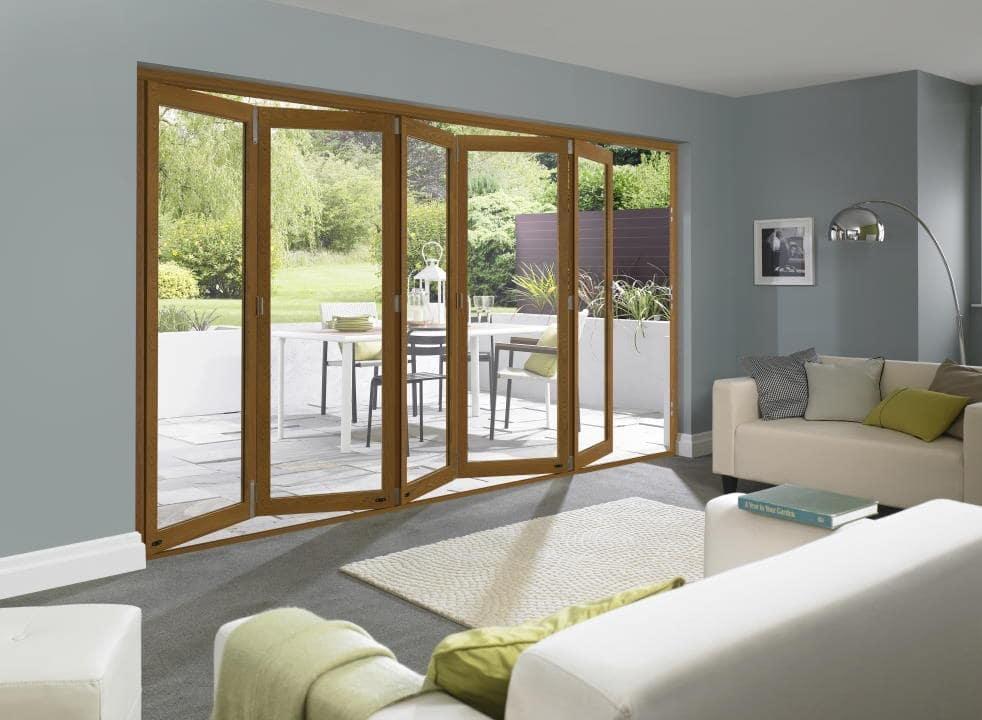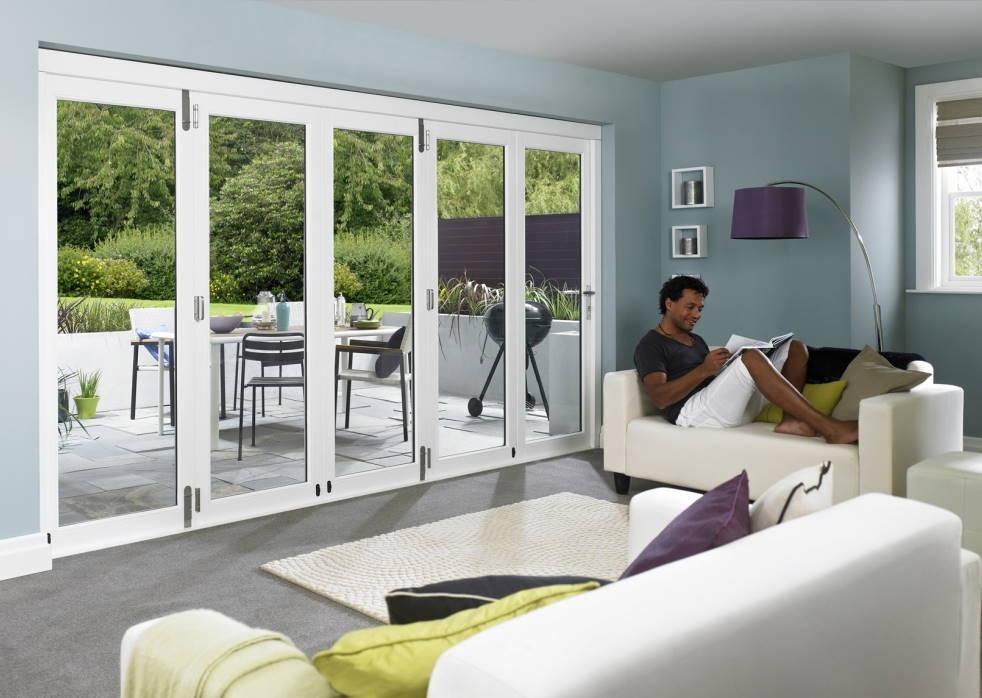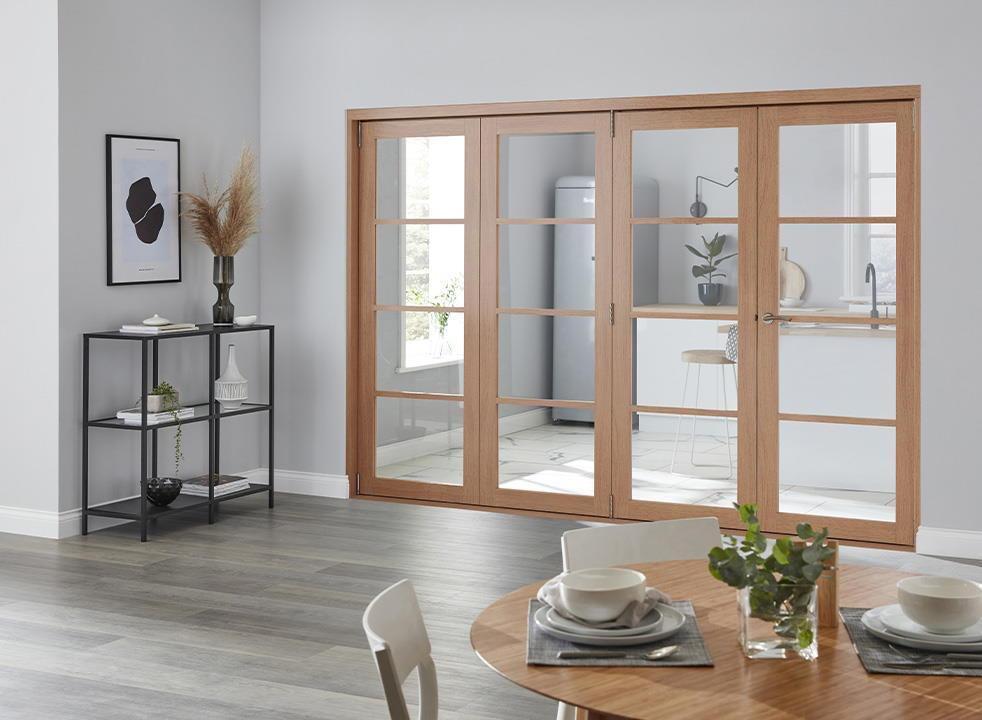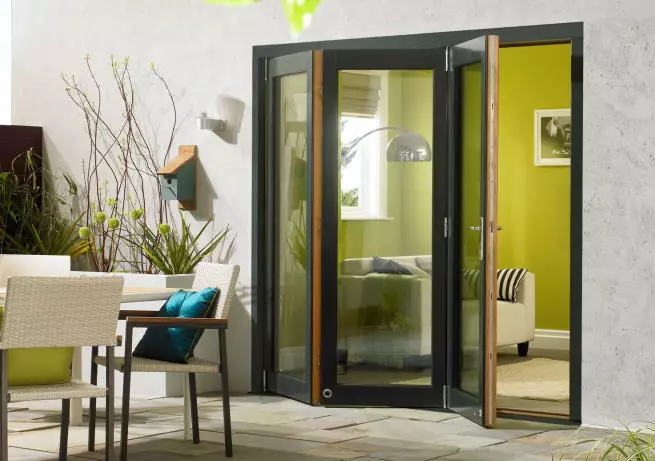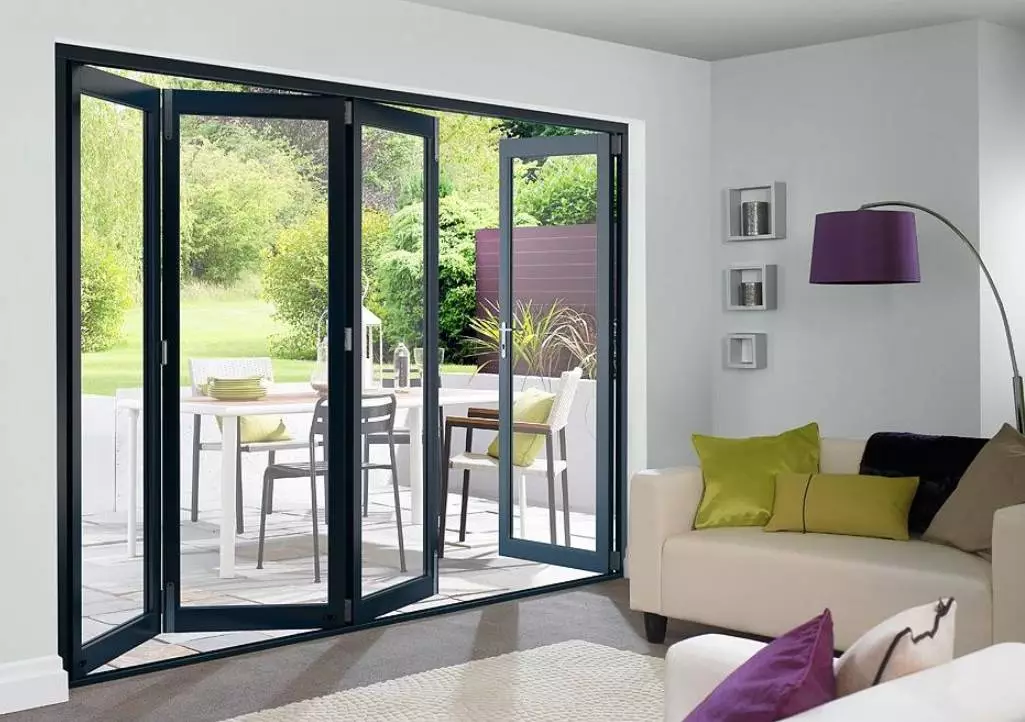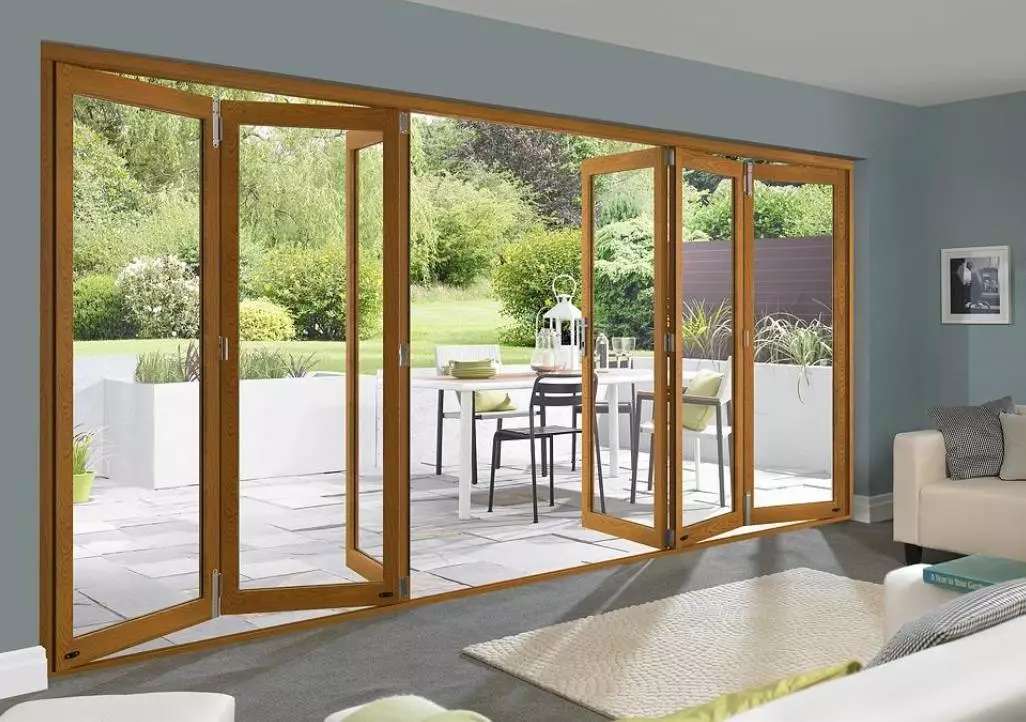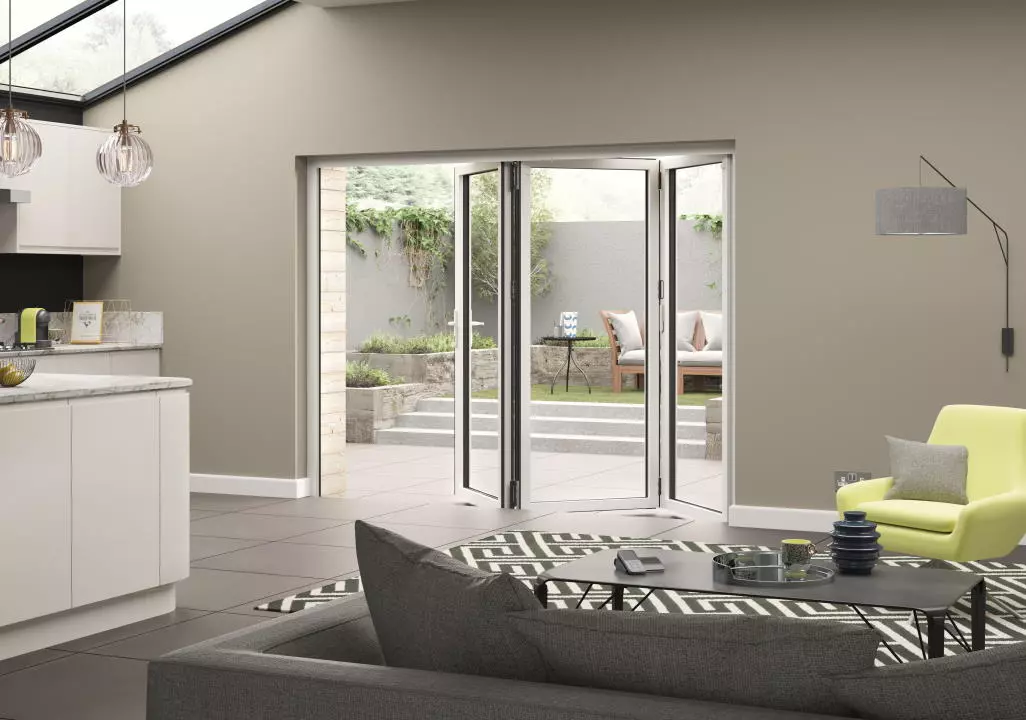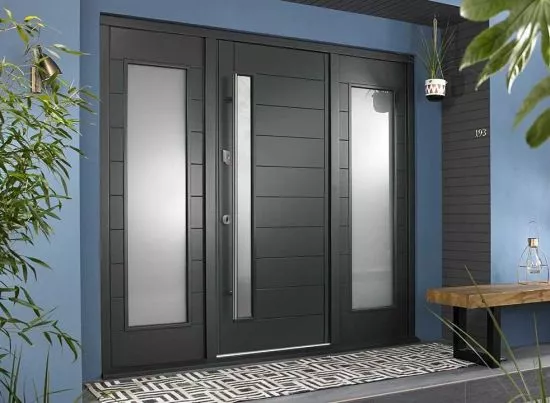Types of glazing
The type of glazing you choose will affect the U-value of a bifold door, and therefore, it's thermal efficiency. You should carefully consider the glass options available to you as the glazing you choose will have a dramatic impact.
The three main types of glazing are:
Single glazing
Single glazing is very uncommon for external bifold doors. It is highly unlikely you will be able to purchase external bifold doors with single glazing.
Key information:
- Single glazing is a single pane of glass, which means that it is the least secure of all glazing types
- Single glazing provides the least amount of thermal insulation
- Single glazing is typically used in listed buildings or with internal bifold doors
Double glazing
Double glazing is the most common and cost-effective option for bifold door glazing. It is created by placing two panes of glass with a hermetically sealed unit between them. This gap ensures a minimal amount of energy is passed between the panes.
Gas is often used between the double glazed unit. Vufold uses Low-E (low mission) Argon gas to ensure optimum thermal efficiency. Other gases are available such as Krypton, however, these are much more expensive with little benefit. Double glazing is highly effective at protecting your home from the elements and, coming in at a much lower cost than triple glazing, is a popular option for homeowners in the UK.
Benefit 1: Excellent thermal efficiency
The space between the two panes of glass provides added insulation, improving the U-value and thermal efficiency of your home. Double glazing can help to keep your home both warm in the winter, and cool in the summer. As the UK climate rarely experiences extreme weather conditions, double glazing is usually sufficient enough to protect your home unless you live in a more exposed area. The improved thermal efficiency of double glazing means that you can enjoy a reduced heating bill in the winter and a cooler room in the summer.
Double glazing can help with noise reduction. Sealed double glazing is excellent at minimizing noise from human voices, cars and other outside sounds, which is perfect if you live on a busy street or have noisy neighbours.
Benefit 2: Increased security
Double glazing is safer than single glazing. The two pane technology means the windows are thicker and harder to break. The double panels burglars need to break through will take longer, create more noise and require more effort.
Downsides
If the seal used to join the two panes of glass breaks down, you will notice condensation. However, this is unlikely to be an issue if you purchase from a quality retailer.
Triple glazing
Triple glazing operates in the same way as double glazing, using a pocket of air between panes of glass to improve insulation. However, as the name suggests, in triple glazing, there are three panes of glass rather than two. Triple glazing offers exceptionally high performance when it comes to thermal efficiency and can significantly reduce external noise.
Triple glazing costs more than single or double glazing, but you will likely save money on your energy bill, especially when combined with insulated materials. For example, Vufold’s Ultra composite bifold doors range combines triple glazing with a combi timber/aluminium frame with a U-value of just 1.0 W/m2K.
Due to its nature, triple glazing can be extremely heavy which can put a strain on the hinges and frames of your folding doors so finding the right frame material is important. Aluminium frames provide the strongest support for triple glazing when compared to other materials. Learn more about the comparisons between different bifold door materials in our guide.
The Ultra range of bifold doors combines resilient aluminium cladding on the outside and oak on the inside which allows you to match your doors to both the style of your home and your interior décor.
With triple glazing, the depth of the door may increase too, so this can be an additional consideration where space is a factor. Triple glazing is most common in countries with cold conditions, which rarely occur in the UK, or in high-end bifold doors.
In addition, triple glazing can not only cost more initially, but the cost of delivery and installation can also be higher too due to the weight of the doors. This is something to bear in mind when choosing triple glazing for your home.




